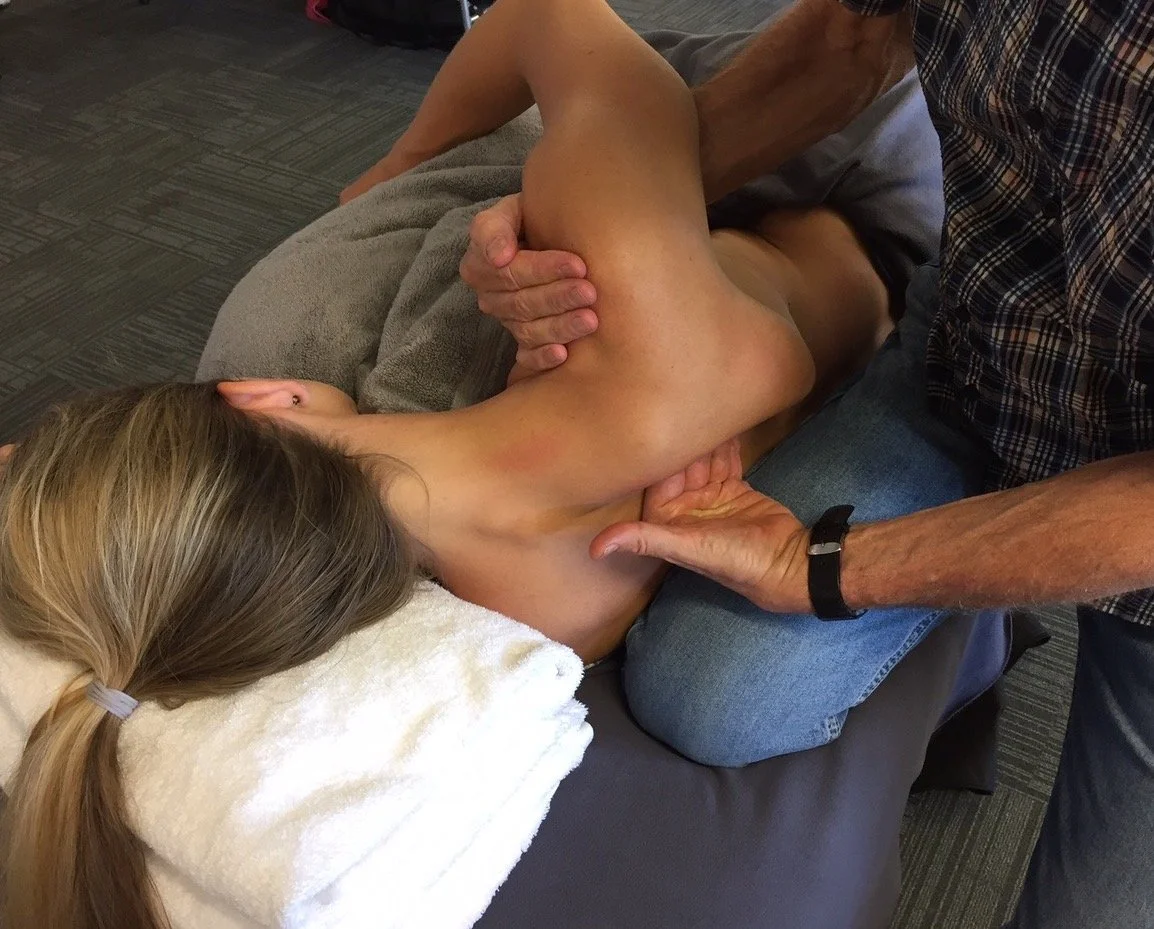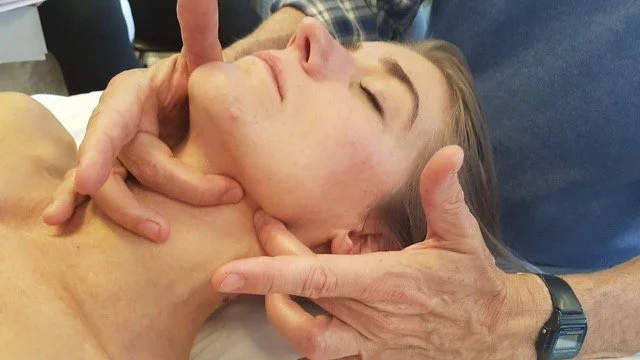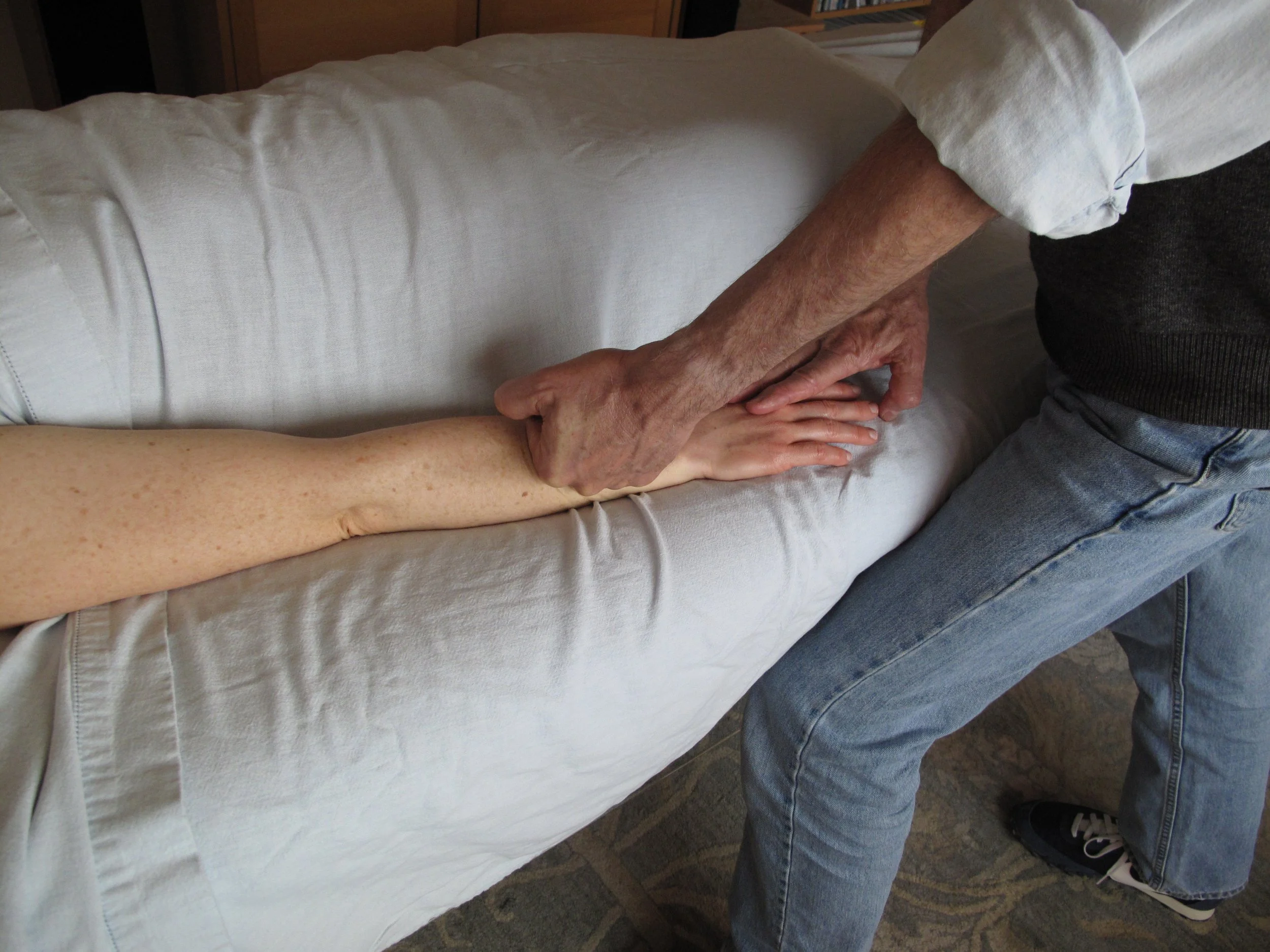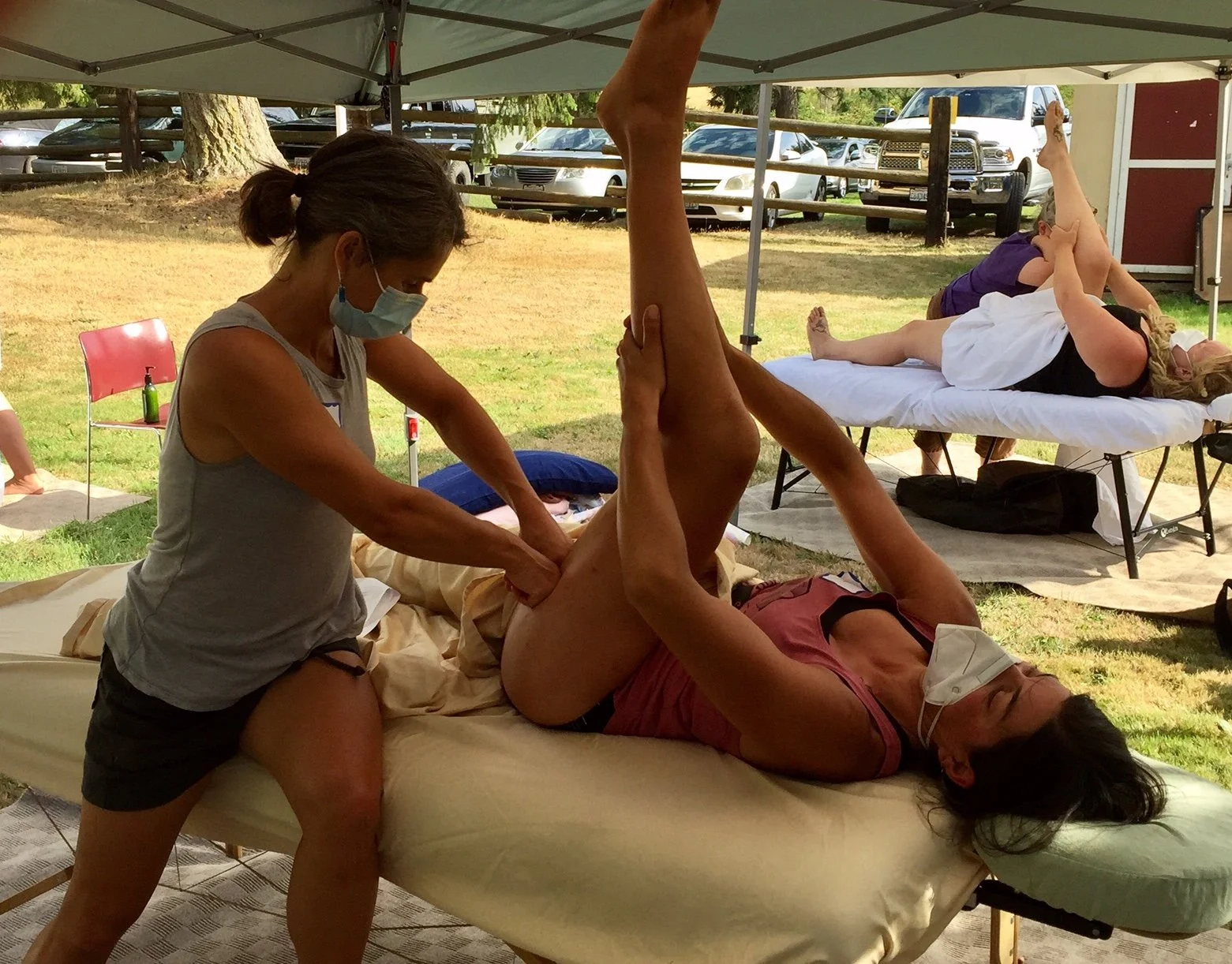Original Face—Working Deeply and Softly with the Muscles and Bones of the Face with Jack Blackburn
Original Face—Working Deeply and Softly with the Muscles and Bones of the Face (jack blackburn, ma)
Two 4-hour live sequential webinars - 2pm-6pm PDT, Sun, Feb 15 and Sun, Feb 22 (8 CE hours ) with Jack Blackburn.
The face is a very important part of the body, which many bodyworkers avoid. In these classes, we are working with all layers including chewing and grinding muscles, the muscles of expression, talking, swallowing and those that connect with vertebrae, as well as all of the bones and joints of face, skull, and sinuses. We will also be working with muscles supporting the physical tonus of the eye, and finally the tentorium that provides support and separation for the brain.
Human faces are mirrors, since we can't see our own faces. One of the primary functions of our faces is to mirror the faces of others – even as they are mirroring us… What we feel inside governs how we mirror others. Loving, open faces create the effect of being truly met. “Truly met” means that someone is greeting us as a fellow soul-being… When we wear a “mask,” what the Greeks called persona, it means that we are playing a part or role in relation to others. Handsomeness and beauty are personas or roles, not necessarily mirrors of empathy.
In Original Face work, we are learning the feeling of relaxed, refreshed, and fearless facial musculature. We are clearing our musculature from past memories and projections. True beauty and ugliness have nothing to do with age… they reflect our ability to mirror others and our willingness to be mirrored back.
Our eyes are gateways to personal and interpersonal expression; they are called mirrors of the soul and can look deeply from our soul to another soul. The expression “Look into the eyes that really see you,” is a deeper form of mirroring that we support with Original Face Work. We will encourage relaxing eye muscles and the inner tension inside and behind the eyes. Many people are afraid to make eye contact… Why? Also, some people are afraid to keep their eyes closed when entering their inner being… Why? What are the stages of letting go of eye-centered fear?
As we attend more to the sensations arising from within our own bodies, a new essence starts to companion us from within. We start to experience presence as the arising of each moment, and become attuned to the NOW. This growing awareness of NOW seems to put many things, especially fearful ones, into different perspectives.
Click here and here to see some short videos of Original Face work. The videos feature gentle massage techniques, as well as gentle tapping techniques to reach all the way down to the facial and cranial bones. To read more about the work, click here.
Please note that if you register one other person along with yourself, the price is still the same, $160. Students learn more if they have somebody to practice on and receive from. See below for details.
Please note: you will learn the most from this class if you participate with a fellow LMT in the same room, as you will be able to both practice and receive the work for the best possible learning outcomes. To support that, Jack is offering a 2-for-1 discount. In other words, two LMTs can attend the class for a total price of $160. If you register for two people, please provide the contact information (name and email) for the second LMT so they can receive the course materials. (You can email the second student’s contact information to Jack here.) Both webinar attendees will receive a class manual, 8 NCBTMB certified CE hours, and video copies of each class session.
Please also note that although this is a hands-on class, it is done remotely and not in-person, so it doesn’t count for the minimum 8 hours of in-person hands-on education for WA re-licensure. However, the 8 hours can be applied to the 24 total CE hours that are required every two years.
Jack Blackburn holds a Master's degree in Theological Studies, is a Certified Spiritual Director, and specializes in body centered spiritual growth and healing. He has been a Trager practitioner since 1986, a Trager tutor since 1993, and has taught Trager electives classes since 1996. He is a NCBTMB-approved Continuing Education provider and AMTA National Presenter, and teaches a variety of classes to caregiving professionals. He is a Focusing Trainer and teaches Bodywork Focusing classes for professionals. Jack is also a Reiki Master and teaches levels I, II, III and Advanced Reiki for Bodyworkers.
Before / After receiving a 25-minute session of Original Face work
Before / After receiving a 25-minute session of Original Face work
Instructor: Jack Blackburn, MA,
CE hours: 8 (NCBTMB-approved for CE credit)
Tuition: $160
Dates and Time: Sun, Feb 15 and Sun, Feb 22; 2pm-6pm (Two 4-hour online sessions)
Registration is through Jack’s organization, using Paypal. Click here to register.















